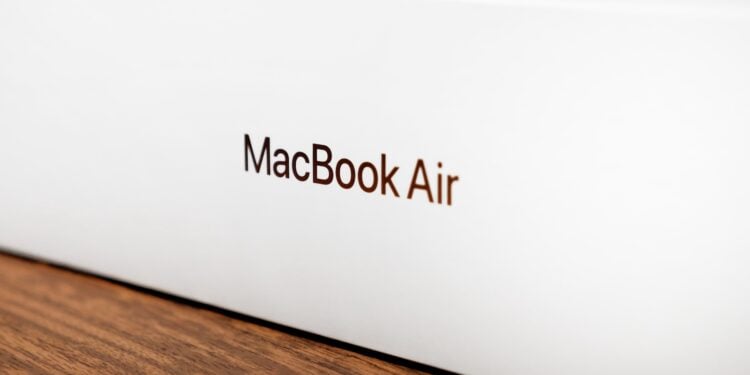Apple regularly sorts out older devices. Anyone interested in the lifespan of Apple products or still using an older MacBook should keep an eye on such lists. Classifying a device as "obsolete" means restrictions on official support—especially for repairs by Apple itself or authorized service providers. This time, it affects three Mac models that played a major role in Apple's portfolio when they were first introduced.
Apple has added three Macs to its list of obsolete products. Among them is the last model of the compact 11-inch MacBook Air, which for many years was positioned as a particularly portable notebook in the lower price range. Also affected are two MacBook Pro models from 2017, which were equipped with four Thunderbolt 3 ports and a 15-inch display, respectively.
Three Mac models officially classified as obsolete
Apple considers devices that were officially discontinued more than seven years ago to be obsolete. After that date, Apple generally no longer offers repairs – with one exception: Battery replacement can be performed under certain conditions up to ten years after the end of sales, provided the appropriate spare parts are available. The models now classified as obsolete are:
- MacBook Air (11-inch, Early 2015)
- MacBook Pro (13-inch, 2017, with 4 Thunderbolt 3 ports)
- MacBook Pro (15-inch, 2017)
The 11-inch MacBook Air was officially discontinued in October 2016. At that time, Apple introduced the new MacBook Pro models with Touch Bar. The fact that the smaller Air model is only now appearing on the obsolete product list suggests that it was still available through third-party retailers after its official discontinuation—presumably until 2018. The seven-year gap to the present day fits the definition of "obsolete" status.
No more small MacBooks in the current line-up
With the discontinuation of the 11-inch model, the compact format is finally history. Apple currently sells the MacBook Air with 13.6 and 15.3-inch screen sizes. Anyone looking for a device with a smaller display won't find it in the current range. However, rumors have been circulating for some time about a new 12.9-inch MacBook. This is said to be equipped with the A18 Pro chip, which is expected to be used in the iPhone 16 Pro. Whether and when this model will be released has not yet been officially confirmed.
The iPhone 8 Plus also moves into the vintage category
In addition to the three Macs, today's update also affects the iPhone 8 Plus – at least the versions with 64 GB and 256 GB storage. These devices are now classified as "vintage." Apple defines a device as vintage if it hasn't been sold for more than five years. Unlike obsolete products, these models can still be repaired – but only for a limited period. Two years later, they are also classified as obsolete, depending on the availability of spare parts. The iPhone 8 and iPhone 8 Plus were introduced in September 2017 alongside the iPhone X. The sales halt was therefore a long time ago, which makes the current classification understandable.
Apple focuses on new generations
With this new classification, Apple is making a clear distinction. The 11-inch MacBook Air is now permanently removed from the support cycle, as are two MacBook Pros from 2017. At the same time, Apple is signaling that the product line's focus is shifting further toward larger displays and more powerful chips. Users still hoping for compact models will have to be content with rumors for now. The iPhone 8 Plus' vintage classification also demonstrates how Apple is gradually removing older iPhones from support – with clear timelines. If you're interested in repairs or replacement parts, it's worth checking official Apple Support or authorized partners before these models are completely removed from the service offering. (Image: Shutterstock / Semyon Prudiy)
- Apple vs. Epic Games: Appeal in App Store dispute underway
- UK continues to demand global access to iCloud data
- Apple warns of delays due to new CMA rules in UK
- PayPal data theft: Millions of login details on the darknet
- Germany: Apple is not allowed to call Apple Watch climate neutral
- Elon Musk sues Apple and OpenAI: Dispute over the App Store





